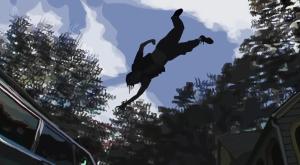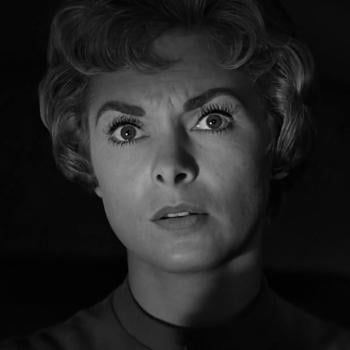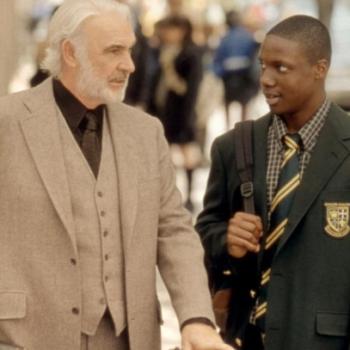
Today we’re going to do something a little different and venture more into something a little more avant-garde than the films we usually talk about. Don’t get scared. This is actually where most of the really fun film discussion is.
Richard Linklater’s Waking Life invites the viewer to explore the boundary between reality and human perception. The film follows an unnamed protagonist as he wanders through various dreamlike scenes in search of truth. The entire film is rendered through animation, though the exact style differs across segments.
The entire film is like being in a dream. Not the kind where you get to school and realize you forgot your underwear, but the kind of dream that feels almost mundane except for the slight distortion filter that gives everything a heightened feel–the kind of dream where you can start floating in place and everyone in the room carries on. The people in this “dream” converse with a certain poetic quality. They dissolve into patches of cloud and no one bats an eye. In an early segment, the protagonist encounters a philosophizing taxi driver who spells it out clearly, at least as clearly as you’re going to get in this film: “This is like my window to the world, and every minute it’s a different show. I may not understand it, I may not necessarily agree with it. But I’ll tell you what–I accept it, and just sort of glide along.”
By nature, many of these segments speak directly to the nature and purpose of spirituality. There are some segments that invoke God directly, but even when he isn’t directly referred to, there’s still an overtone of divinity to these conversations. One segment in particular, the Holy Moment bit, is one of those that dances around God, while also laying out the overlays between spirituality, film, and community.

Our “protagonist” behaves more like a dispassionate observer of events than a true participant. He has been drifting through his dream world for about half of the film before starts to outwardly question the shape, transience, or integrity of the plane he is traveling through. He is not unlike any of us who are halfway through our own narratives before we start to ask whether we are walking zombies in our own dream planes, when we start questioning if there is more to existence than our discernible surroundings.
There is a section toward the end of the film where our protagonist, having become more excited by the rules of the dream world, starts asking familiar faces if they recognize him from earlier dreams, and there’s a sadness as he realizes he has started to outpace their fluency in this dreamworld, all without really answering that original question: “how do I know when I’ve woken up?” The running thread through this film is that the protagonist keeps trying to wake up, but every time he graduates from one dream, he only finds himself in another, never really escaping his fake reality.
The film’s ultimate conclusion seems to be that if true reality exists, it may well be beyond our capacity to perceive it. In fact, we’re probably all in a dream right now and won’t realize it until we’ve woken up into another dream. This is the kind of takeaway is really fun as a brain teaser for film aficionados, but it can be a little frustrating if you’re genuinely trying to secure reliable answers, and this is where spiritual eyes can go a long way.
This film can be viewed as a shadow of our experience in mortality, and the protagonist’s quest to find true reality is not unlike the search for divinity in the mortal sphere. And this is where faith and spiritual knowledge can carry a long way. Viewed strictly as a construct, religion offers us the chance to experience this true awakening, to look past the artifice of mortal existence and glimpse into a more eternal dimension.
The irony is that the “dream world” of the film is actually a lot more fantastical than the “waking world” that the viewer is presumably watching the film from. Yet our true reality, the divine world we seek to awaken to, is far more fantastical than the temporal world we walk through now. It’s good to have something to look forward to.













